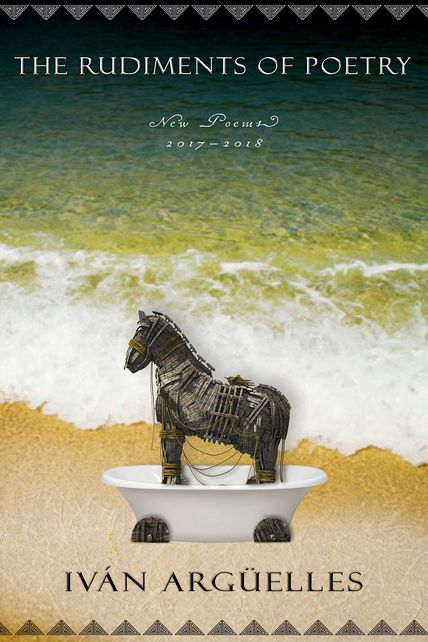
In reading this vast new collection by the prolific Iván Argüelles, written in ten months straddling 2017 and 2018, we participate in a universal mind with an oceanic breadth and impact unique in American poetry, rich with history, myth, vision, soul and sound.
Notices
“The poet, or someone, in this book, multiple and shifting, speaks to himself as the poet as the other. That voice speaks of the rudiments of poetry as being a never-ending struggle to know oneself through written visionary language in a world a time a movement of everything that is. Time here is all the timelessness of poetry, where Homer and Virgil and the ancient classics are alive and speaking, along with the voice and world of Iván Argüelles whose lifetime of poetry is strongly invoked throughout this tome, a summit and depth of his entire uniquely spectacular work. The Rudiments of Poetry both creates and distills, and comments on a life inside the heart of poetry, a poetry that cannot ever have an ending: ’this is not skin the song / this is not a body of bones / but a sack of language with its broken lamp / there must be a doorway somewhere / there must be more to space than time’.”
—John M. Bennett
“Argüelles scores again with lyrical acumen
And grace. He leads poesy to where it is
Rooted with trees and stands solid as a
Mountain. His books are many, and they are all revelation born of single letters.”
—Neeli Cherkovski
“Looking for a name for a mind that incorporates stunning coherence and equally stunning, deliberate chaos, and which ranges from Ancient European myth (the ‘Classics,’ etc.), to Mesoamerica, Hindu Antiquity, multiple languages and high Pop (the singer Madonna was the subject of a huge epic)—looking for a word for all this, I can find nothing but the word ‘American’: ‘I am large, I contain multitudes.’ Whitman, Emerson, Melville, William Burroughs—to say nothing of Ezra Pound and James Joyce—are the deep ancestors of this amazing utterance, though nothing in their work could have predicted it. Iván Argüelles has taken all these elements along with European and Spanish Surrealism and baked them into an American pie of immense significance. Language is what you do with your tongue.”
—Jack Foley, author of When Sleep Comes
“Iván Argüelles channels the brilliant ancient past and simultaneously guides us toward the future of the avant-garde. I don’t know of anyone else writing today who can ride the thunder of the epic mode and also achieve the dazzle of the high lyrical mode, sometimes in the same text. Ivan is doing things that no one else is doing: he is a national treasure.”
—Lawrence R. Smith, editor of Caliban
